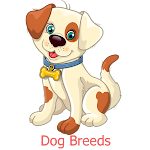 |
| Collie Breed |
The Collie breed is a beloved and popular type of dog known for their intelligence, loyalty, and striking appearance. In this article, we will explore the history and characteristics of the Collie breed, from their origins to their modern-day role as family pets and working dogs.
History
The Collie breed originated in Scotland, where they were used as herding dogs for centuries. Their name is thought to come from the old Celtic word "colley," meaning black, and it is likely that the breed's ancestors were black herding dogs used by the ancient Celts. Over time, the Collie breed was developed and refined in the Scottish Highlands, and they became known for their exceptional herding abilities and intelligence.
Early Development
In the 18th and 19th centuries, the Collie breed began to gain recognition outside of Scotland. Queen Victoria, a known dog lover, played a significant role in popularizing the breed when she began keeping Collies at her royal estates. This royal endorsement led to a surge in the breed's popularity, and the Collie began to be seen as a prestigious and sought-after type of dog.
Entry to the United States
In the late 19th century, the Collie breed was brought to the United States, where they continued to be valued for their herding abilities. However, as the American West was settled, the role of the Collie began to shift. They were no longer just herding dogs, but also found work as search and rescue dogs, therapy dogs, and more recently, as beloved family pets and show dogs.
Characteristics
The Collie breed is known for their distinctive appearance and gentle demeanor. They are medium-sized dogs, with a long and elegant coat, often seen in shades of sable and white. Their eyes are expressive and intelligent, and their ears are perky and alert. The Collie's overall appearance gives them an air of grace and beauty that is hard to resist.
Temperament
Collies are known for their loyalty and devotion to their families. They are gentle and affectionate dogs, often forming strong bonds with their owners. They are also highly intelligent and trainable, making them excellent candidates for obedience and agility training. However, their herding instincts can sometimes manifest in a desire to "herd" children or other pets, so early socialization and training are important for a well-adjusted Collie.
Health and Care
Like all breeds, Collies are prone to certain health issues, including hip dysplasia, eye problems, and a sensitivity to certain medications. Regular visits to the veterinarian and a high-quality diet are essential for keeping Collies healthy and happy. Their long coats require regular grooming to keep them looking their best, so owners should be prepared to invest time in brushing and grooming their Collie's coat.
Conclusion
The Collie breed has a rich history and a number of admirable characteristics that have secured their place as beloved family pets and working dogs. Whether they are herding sheep or sitting by the fire at home, Collies are loyal, intelligent, and beautiful dogs that make a wonderful addition to any family.
FAQs
Are Collies good with children?
Collies are known for their gentle and affectionate nature, and they often form strong bonds with children. However, their herding instincts can sometimes lead to them trying to "herd" children, so early socialization and training are important to ensure that they interact well with kids.
Do Collies require a lot of exercise?
Collies are an active breed and do require regular exercise to keep them happy and healthy. Daily walks and playtime are important for keeping Collies physically and mentally stimulated. However, they are also content to relax at home with their families, making them a versatile breed in terms of exercise needs.
YOU MAY LIKE:
The 10 Dogs Breeds with the Longest LifespansThe 10 Fluffiest Dog Breeds
The 10 Fluffiest Dog Breeds
The 10 Healthiest Dog Breeds
The 10 Least Aggressive Dog Breeds
The 10 Dog Breeds with the Strongest Bite Force
The 10 Dog Breeds with Webbed Feet
The 10 Dogs Breeds with the Longest Lifespans


